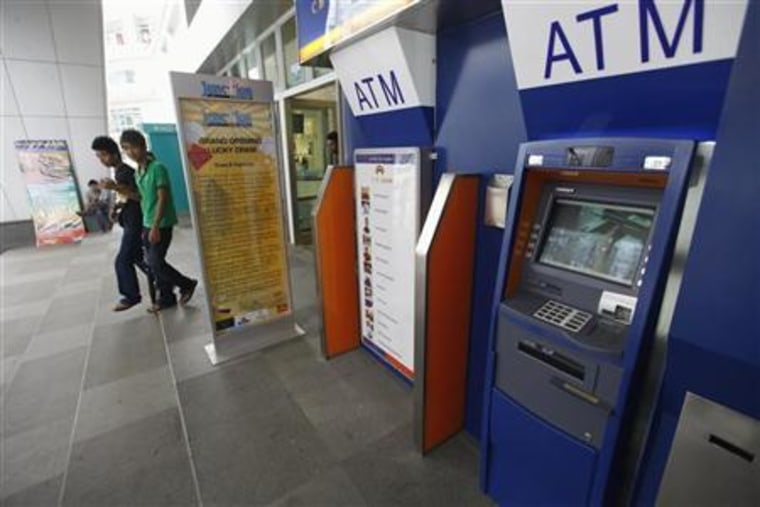American consumers continue to “experience problems” managing their accounts at banks and credit unions across the country, according to a new report from the Consumer Financial Protection Bureau.
There are more than 200 million deposit accounts open nationwide — checking, savings and certificates of deposit. Since March 2012, the CFPB has handled approximately 94,000 complaints about these accounts.

A majority of the complaints (64 percent) deal with checking accounts. The most common problems deal with account management (45 percent) and withdrawals (25 percent), followed by sending or receiving payments (13 percent), problems caused by low funds (10 percent) and trouble using a debit or ATM card (seven percent).
The CFPB’s Monthly Complaint Report uses a three-month rolling average — comparing the current period to same period last year — to account for monthly and seasonal fluctuations. Bank-related complaints increased dramatically, from 1,890 in May-July of 2015 to 2,239 in May-July of this year, an increase of 26 percent.
“Deposit accounts are an essential component of millions of consumers’ financial lives,” CFPB Director Richard Cordray said in a statement. “We are concerned that consumers continue to face difficulties accessing and managing this cornerstone financial tool. Consumers who are eligible for a deposit account should be able to get one and use it effectively.”
The nation’s bankers question the accuracy of the government data and say they’re doing a very good job of keeping their customers satisfied.
“The complaints are unverified and often mislabeled and financial institutions have no effective opportunity to respond with the other side of the story,” said Nessa Feddis, a senior vice president at the American Bankers Association. “It’s highly questionable that this resource advances the Bureau’s goal of helping consumers make informed financial decisions.”
Feddis told NBC News that based on the hundreds of millions of bank accounts and the billions of account transactions that take place every month, the number of complaints is minuscule. Her conclusion from the report is that “banks are doing a fantastic job.”
Consumer advocates see it differently.
“The CFPB’s Consumer Complaint Database is an important tool in helping researchers, the public, and policymakers understand business practices that may be detrimental to consumers,” said Joy Hackenbracht, with the Consumer Banking Project at The Pew Charitable Trusts.
“Consumers continue to describe issues related to overdraft policies and fees, including the amount and frequency of fees and the reordering of transactions from high to low by dollar amount, which maximizes these fees,” she said.
The CFPB’s new report highlights the most common complaints related to banks and credit unions:
- Trouble opening accounts: Consumers frequently complained that financial institutions use credit reporting data to screen them for a new account. Many said they first learned of negative information in their file — either with a national credit reporting agency or specialty checking account database — when they tried to open an account. They were also unhappy that it was difficult to correct potential errors that prevented them from getting that account.
- Overdraft fees and availability of funds: People hit with overdraft fees are upset about the high cost of that fee when making a small purchase. (We’ve all heard of the $4 latte that wound up costing $39.)
- Some complained that they overdrew their account because they were confused about the availability of the funds that they had deposited or were attempting to deposit.
- Many voiced frustration about their bank’s check-holding policies that resulted in much-needed funds being unavailable for an extended period of time. A number of these complaints involved problems using mobile deposit applications — including the fact that some institutions have different funds availability policies for mobile deposits.
- Frustration about error resolution procedures: These consumers complained that when an unauthorized transaction occurred they faced prolonged response times and did not get a provisional credit for disputed transactions while they were investigated.
No one likes to pay an overdraft fee, but as the price of overdrawing an account has gone up in recent years, the feeling of being gouged has grown. The most common overdraft fee is now $35, according to Bankrate.com.
Pew’s research finds that 87 percent of those who overdraft are “somewhat or very concerned” about the cost of the service. Eighty percent believe that overdraft practices and fees should be more closely regulated.
According to Pew’s nationally representative survey, 37 million adults in the U.S, a number roughly equivalent to the population of California, do not have a checking account. The most common reason given for being unbanked — overdraft fees.
The CFPB report also listed the financial institutions with the most complaints between March and May of this year: Bank of America, Wells Fargo, JPMorgan Chase, and Citibank.
For more complaint data or to read individual consumers' experiences, visit the CFPB’s Consumer Complaint Database. You can also file a complaint about a financial product or service online.
Herb Weisbaum is The ConsumerMan. Follow him on Facebook and Twitter or visit The ConsumerMan website.